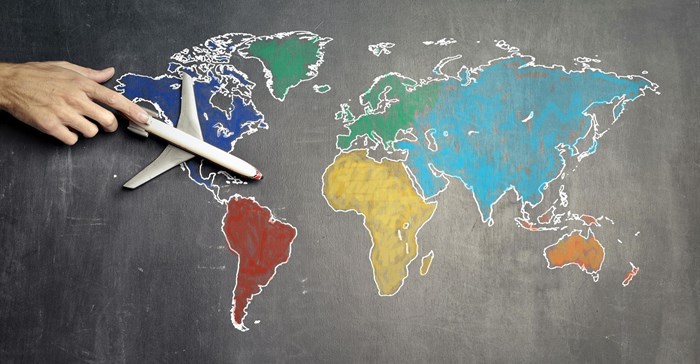There’s more to celebrate about moving back to South Africa than the lifestyle, natural beauty and familiarity of home.

Source: Supplied.
With the exchange rate in their favour, many expatriates are looking to invest in property in South Africa, where they can be assured of comparatively better value for their long-term financial stability, says Bradd Bendall, chief executive officer (interim) of BetterBond.
“Inflation and higher interest rates are not unique to South Africa but having pounds or dollars in the bank does give buyers of local properties a considerable financial edge. It is therefore not surprising that, according to the Prime Residential Index (PIRI 100), Cape Town has one of the best performing luxury markets in the world.”
The latest Knight Frank Report (2024) notes that in London, $1m (R18.8m) will buy about 33m² of property. In Sydney, you can get an extra 10m² for the same value, while in Cape Town, you can buy 196m² for that amount. Re/Max currently has a listing for a four-bedroom 226m² apartment in Camps Bay, on the Atlantic Seaboard, for R18.5m.
But Cape Town is not the only city attracting expatriates, says Bendall. While Cape Town has plenty to offer in terms of lifestyle, Gauteng is still viewed as a destination of economic opportunity – it is the largest provincial contributor (34%) to the national economy – offering varied employment prospects and higher salaries, says Bendall.
According to BetterBond’s February Property Brief, Gauteng dominated the home-loan market for the 12 months to January 2024, with two regions – Johannesburg North West and Johannesburg South East – accounting for more than half of all home loans during that period.
With the semigration momentum driving house-price inflation in Cape Town and many of the smaller coastal towns, Gauteng often offers more value for money, notes Bendall. For South Africans choosing to repatriate, and who are already dealing with the cost of relocation, Gauteng is an attractive option.
Those who have returned to work for companies in Gauteng are choosing to settle in the northern suburbs such as Sandton or Hyde Park, or even nearby Pretoria which offers a quality lifestyle just a short commute from Johannesburg.
Seeking financial comfort
“Anecdotally, we are hearing that many of the returning expatriates are those who settled overseas before they were married, and now want to settle in their home country with their families so that they can offer them a better quality lifestyle. They have pounds or dollars saved up, and they know they can afford far more than they could overseas,” says Bendall.
Some of these buyers may still be working for overseas companies, but the ability to work remotely from anywhere in the world has made it possible for them to settle back at home. “Some even opt to buy second properties in South Africa where they return for the summer, while working remotely.”
Furthermore, many buyers return to be with family who may be getting older. “Family is an important consideration for South Africans and we have seen a marked increase in multigenerational living, with StatsSA data suggesting that more than 45% of households are double generational with parents and children living together.”
Offering more property for your buck, South Africa is better able to accommodate this kind of living than other countries where the buying power is far less.
While South Africa has its fair share of challenges, including load shedding, water shortages and socioeconomic inequality, it is still relatively stable compared with parts of Europe and the Middle East, for example, affected by conflict. Of course, lifestyle is a massive drawcard, says Bendall. South Africa has plenty to offer – beaches, mountains, winelands, outdoor activities and natural beauty.
“Luxury lifestyle estates that offer security and a host of recreational activities are particularly sought after by returning buyers who can pay premium prices.”








































